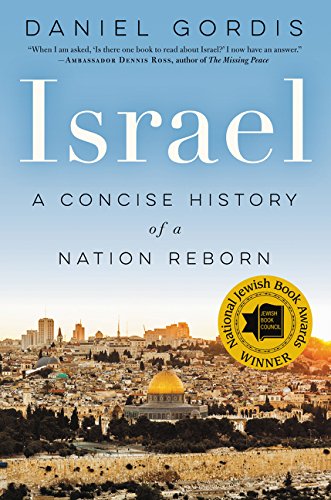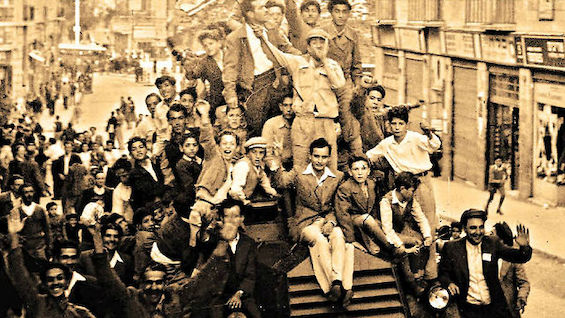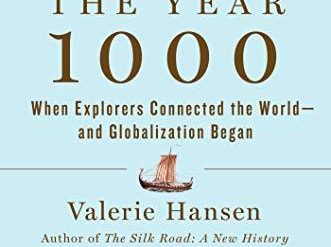
Few subjects are more likely to set off heated arguments among American Jews than the actions of the State of Israel. Since the country claimed its independence in 1948, Israel’s wars and its relations with the Palestinian Arabs who live inside its disputed borders have accounted for more tears and broken families than even the most controversial questions in America’s own polarized politics. How remarkable it is, then, that a Jewish historian, born in the United States but living now in Jerusalem as an Israeli citizen, could write a history of his adopted country that those with wildly differing views might find balanced and fair. Which explains how Israel: A Concise History of a Nation Reborn by Daniel Gordis was the Jewish Book of the Year in 2016, the most prestigious of the year’s National Jewish Book Awards.
Estimated reading time: 4 minutes
Gaining perspective on Israeli history
Gordis begins his tale with a lucid account of Zionism’s early years. “Zionism was a movement,” he writes, “but it was also a collection of competing dreams. . . Israel’s fractious politics and turbulent political life are, in many respects, the result of these early, unresolved Zionist debates.” Gordis expands on this theme throughout the book, tracing the conflicting ideals that animated successive waves of immigrants throughout the 20th century. In those ideals, he finds the roots of the shifting currents of Israeli politics that confuse so many observers.
Israel: A Concise History of a Nation Reborn by Daniel Gordis (2016) 398 pages ★★★★★

Four dominant themes
Gordis adroitly weaves four themes into the fabric of his account:.
- The continuing conflicts within Zionism between the secular and the religious and over the use of force in displacing the Palestinians.
- Immigration’s enormous impact on the ethnic and political makeup of Israeli society. Ashkenazi (Eastern European) Jews dominated in the early years. They were succeeded by enormous waves of Mizrachi (Middle Eastern), Russian, and Ethiopian Jews. All the later waves shifted the country’s politics steadily to the Right.
- The rising importance of religion as Ultra-Orthodox and other intensely religious Jews entered politics through the settler movement that has proven to be such an irritant in Israeli-Palestinian relations.
- And the ongoing debates about the prospects for peace with the Palestinians, with powerful forces on the Right opposing those on the Left who advocate trading land for peace.
Unless you’re deeply immersed in Israeli history, you’re likely to find a deeper understanding of the origins and consequences of familiar events such as Israeli independence and the Seven-Day War. Do not expect a whitewashed account. Gordis acknowledges the military blunders, occasional massacres, and draconian occupation policies that have so badly marred Israel’s history. He is, nonetheless, a Zionist himself and a committed citizen of Israel.
About the author

Daniel Gordis (1959-) has written a dozen books on Judaism and Israel, two of which have won National Jewish Book Awards. He was born in the United States but moved to Israel in 1998. There, he serves as a senior administrator at Shalem College in Jerusalem. Wikipedia notes that most people consider him a moderate conservative, a perspective that emerges from this book.
For related reading
You might also enjoy The Jews in America by Max I. Dimont (A brilliant account of Jewish history in America) as well as The Debba by Avner Mandelman (A superb novel digs for roots in Israel’s modern history).
Gordis highlights the influence of the Kishinev Pogrom on the early history of Israel. You’ll find a superb account of that event in Pogrom: Kishinev and the Tilt of History by Steven J. Zipperstein (In a prelude to the Holocaust, the Kishinev pogrom shocked the world).
Check out More than 30 worthy books about Jewish topics.
And you can always find my most popular reviews, and the most recent ones, on the Home Page.


























